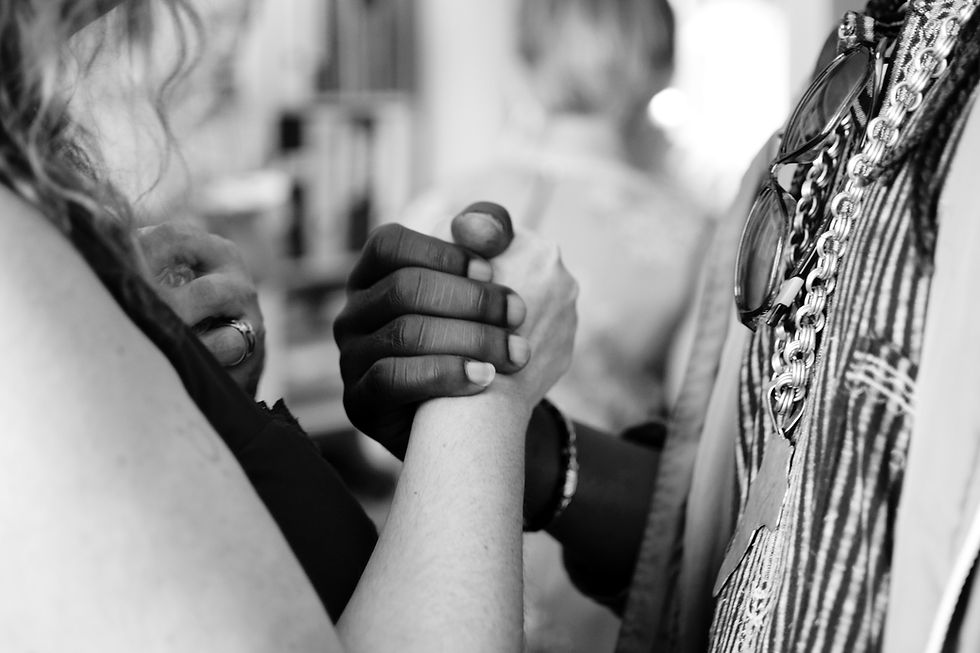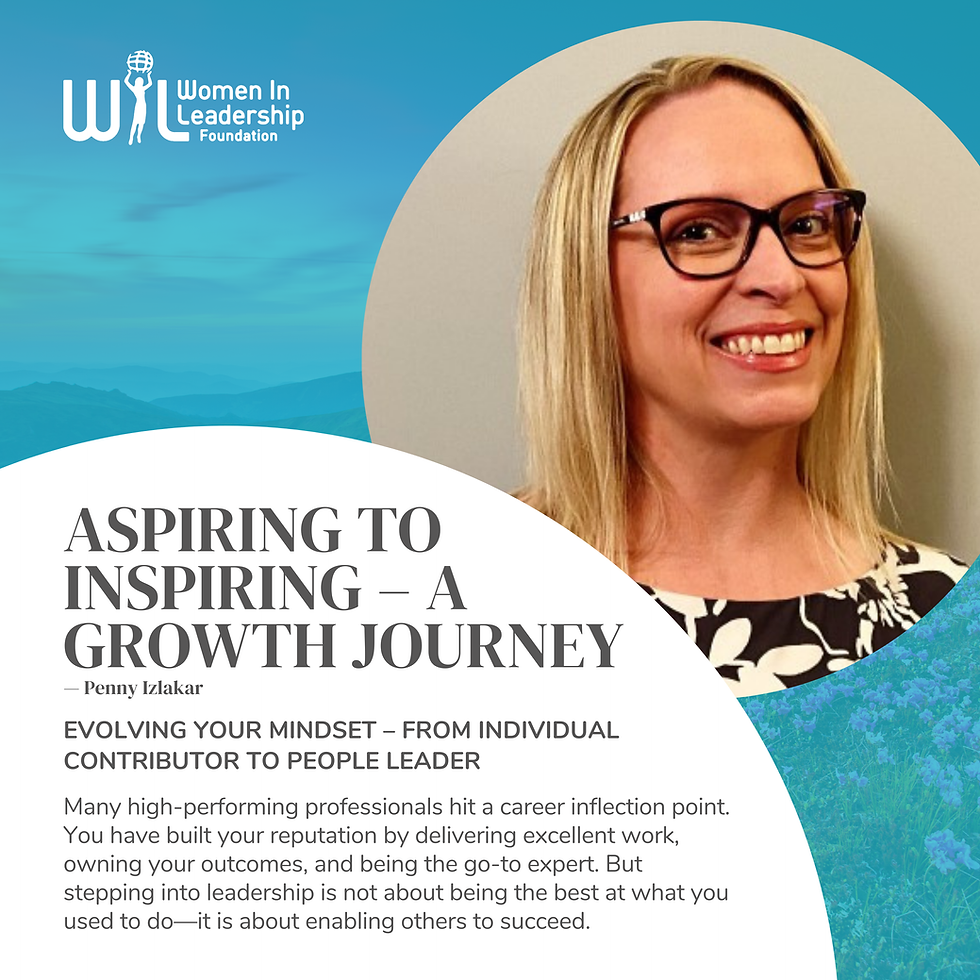Covid, War, What Is Next? Getting through difficult times as an Empath?
- dana6891
- Jul 19, 2022
- 4 min read

Article by Denise Young MAct who offers empowering Keynotes, Training and Facilitation services to a variety of organizations in areas of Equity, Diversity and Inclusion, Leadership and Communications.Development
Covid, War, What Is Next? Getting through difficult times as an Empath?
The last two years have been extremely difficult for all of us. We have dealt with Covid, natural disasters and a war. When you add on that you are an empath, coping becomes so much harder.
What is an Empath?
A week prior to the news about the attack on Ukraine, I was overwhelmed, extreme anxiety and hopelessness. I was on edge, I snapped at friends, and was sad. I felt very “off” but had no idea why. The same day of the news stating the war, I had a friend who texted me that his home town in Ukraine where his family reside was bombed and that he had not heard from his mom. I felt his pain, and absorbed it to the point where it felt crippling. I cried the entire two days until I knew his mom was safe and I couldn’t understand why I was so emotional. I questioned myself as I said that I am not directly involved, how can I be this “sensitive” and felt there was something wrong. I had a few people tell me I was an empath which I didn’t really pay attention to. I am not saying that I fully understood my friend’s pain, but being an empath is about absorbing other people’s energy. At times it may even be difficult to tell if you are feeling your own emotions or someone else’s.
20% of the population are empaths.
There are different types of sensitivities an empath may experience. Physical empaths, for example, are especially attuned to other people’s physical symptoms and absorb them into their own bodies. Emotional empaths (which I am) pick up on people’s emotions and become a sponge for their feelings, both happy and sad. Food empaths are another type of empath who is attuned to the energy of food and may even experience sensitivities to certain foods. You can become an empath either genetically or by experiencing a traumatic event.
When I read The Empath Survival Guide, it resonated with me and helped me realize what was going on in my body and mind. It has helped me use my gift for the better and when I am experiencing sensory overload, I can name it and address it how I need to. Being an empath is different from being empathetic. Being empathetic is when your heart goes out to someone else. Being an empath means you can actually feel another person’s happiness or sadness in your own body. Click here to see if you are an empath.
“Being empathic has incredible benefits such as greater intuition, compassion, creativity and a deeper connection to other people. But living in this state of high sensitivity also comes with its challenges such as becoming easily overwhelmed, over-stimulated, exhausted, or absorbing the stress and negativity of others”.
What can we do as empaths?
There are several things we can do, but here are my top 5 which have worked for me.
Tip #1: Eliminate Noise
Empaths are often sound sensitive and have a lower tolerance for noise. It’s important that we empaths honor our sound sensitivity and do our best to create an environment that is quiet and peaceful. Click here for strategies to eliminate noise.
Tip #2: Stay Away from Energy Drainers (technology/people etc.)
Stay away from things that you know will be energy drainers. This can include friends and families. Are you agitated or feel more drained than before you saw this person, if yes, they are an energy drainer. Sometimes it is not an option to stay away therefore control how much time you spend listening to stressful people, and learn to say “no.” Set clear limits and boundaries with people, nicely cutting them off at the pass if they get critical or mean. Remember, “no” is a complete sentence.
Another one for me is media (news, social media). I need to be on social media for my work but I need to control my time. When I see posts of anyone suffering it takes a toll on my energy therefore I will try to “scroll past”, do my post and get off the platform. For this reason, I rarely watch the news due to the constant negative content.
Tip #3: Connect with Nature
Walk in the grass with bare feet and touch flowers and other plants that are soft to the touch and/or sit near a body of water.
Tip #4: Set Boundaries and Communicate
This is important as we need our alone time to process and sometimes refresh ourselves. If you have a partner, kids, pets etc. living at home, ensure you communicate the importance that you need some quiet time. Even if it can only be 10 minutes. I had a previous partner that would be at the door asking questions even before I walked in the door, the music would be on and I felt very agitated. I said it was nice to be greeted but please give me 10 minutes to just be alone so I would be better company.
Tip #5: Wash Away Negative Energy
If you are coming home from a day where you feel drained, two simple techniques are to change your clothes and/or take a shower or bath.
Resources:
Denise Young, CEO/Founder/Consultant: Tiger’s Eye Advisory Group.Denise creates collaborative work spaces where “everyone is at the table”. She has a Bachelor of Management and a Masters of Arts in Communication and Technology from University of Alberta. Reach out to Denise, if your organization is interested in EDI, Leadership or Communication Workshops, Keynotes or Facilitation Services.
Connect with Denise:
LinkedIN: Denise Young
Website: www.tigerseye.ca
Email: deniseyoung@tigerseye.ca

Denise Young, CEO/Founder/Consultant: Tiger’s Eye Advisory Group. Denise creates collaborative work spaces where “everyone is at the table”. She has a Bachelor of Management and a Masters of Arts in Communication and Technology from University of Alberta. Reach out to Denise, if your organization is interested in EDI, Leadership or Communication Workshops, Keynotes or Facilitation Services.
Connect with Denise:
LinkedIN: Denise Young
Website: www.tigerseye.ca
Email: deniseyoung@tigerseye.ca
.png)


